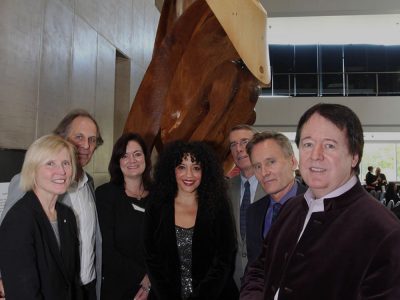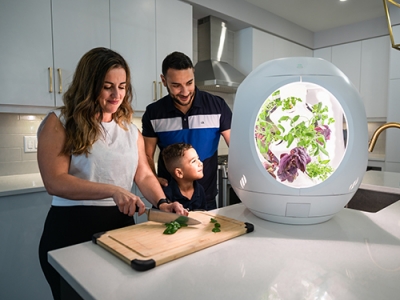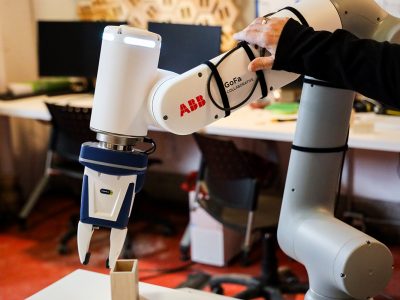By Elizabeth Kane
On International Women’s Day, Carleton University honours women throughout the world and encourages everyone to work to #BreaktheBias so that we can all live in a more equitable society.
From leaders in STEM to disability rights activists, Carleton students are making a positive impact in their communities.
Continue reading to learn more about a few of our inspiring women leaders.
Anastassia Gharib Recognized for Work Supporting Women in Engineering
When Electrical and Computer Engineering PhD candidate Anastassia Gharib first arrived at Carleton as an international student from her home in Jordan, she didn’t know anyone in the area.
However, by harnessing her passion for engineering, she was quickly able to forge strong connections by becoming involved in her local IEEE chapter.
“IEEE is like a family that connects people of the same interests,” says Gharib, who currently works on managing information-centric wireless sensor networks for enhanced user security satisfaction at the Sensor Systems and Internet of Things Laboratory in the Department of Systems and Computer Engineering.
From her early days as chair of her local affiliate, Gharib has become a cornerstone of the IEEE Women in Engineering (WIE) community.
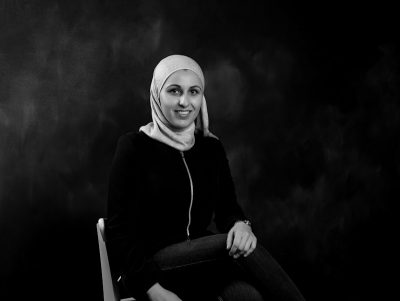
Electrical and Computer Engineering PhD candidate Anastassia Gharib
Her work was recently honoured with the inaugural IEEE WIE Committee Outstanding Volunteer of the Year Award.
“I was very surprised, honestly. I wasn’t aware of the fact that I would be receiving it,” she said of being awarded the global prize.
“I am the first person to receive it as well, which is very rewarding.”
Gharib was recognized for her work with regional coordinators throughout the world to harmonize their approaches to establishing guidelines for the organization. IEEE WIE noted in bestowing the award that this effort not only helped regional groups at the time but has also set the organization up for future success.
As Gharib looks ahead, her future plans include continuing to work with the Internet of Things, artificial intelligence and machine learning, as well as IEEE WIE.
“I know that I will continue with IEEE WIE, as it has become a big family for me,” she says. “I have connected with many extraordinary women that I would have never thought I would even meet.”
Megan Linton’s Mission to Create a More Accessible World
Sociology PhD candidate Megan Linton has been involved in disability justice community organizing for the past decade. Her research uses her experience in community organizing to make sure that disabled people are included in policy, data, and have access to justice.
“I’m so grateful for the disability community and want to do everything I can to support others, particularly those who have been routinely forgotten for so long.”
During the pandemic, Linton helped track COVID-19 cases and outbreaks at institutions across Ontario, advocating for disabled individuals to be prioritized for vaccinations.
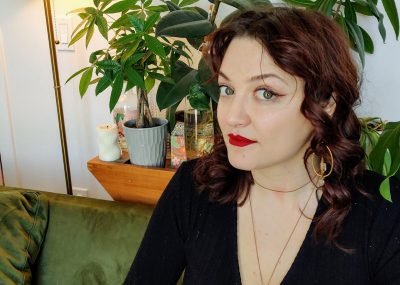
Sociology PhD candidate Megan Linton
“If we’re going to vaccinate all of the retirement homes and long-term care facilities,” she says, “we need to include other types of institutions where people are at a higher risk.”
She helped present research to public health units, politicians, policy makers, organizations and media, leading to a more accessible vaccine roll out.
For her disability advocacy, Linton was awarded the 2021 Dr. John Davis Burton Award from Carleton’s Paul Menton Centre for Students with Disabilities.
Looking forward, Linton will continue her disability research and activism to ensure freedom and justice for people with disabilities.
As part of this calling, she launched the Invisible Institutions podcast, which examines the history and ongoing use of institutions in Canada.
“I feel very committed to making sure that the world is a place where my friends can live and have autonomy in their choices.”
Jada Gannon-Day Connects Academic Concepts with Community
Second year Anthropology student Jada Gannon-Day is passionate about caring and advocating for her community. They have a long history of expressing this advocacy through social media channels, so when a research assistant position became available in the Transgender Media Lab it was a great opportunity.
“I had originally received an email saying the research position was open, but I wasn’t sure if I was qualified because I hadn’t been working in academic positions,” says Gannon-Day.

Second year Anthropology student Jada Gannon-Day
They admired the work of the Transgender Media Lab, its research and promotion of audiovisual media created by transgender, Two Spirit, nonbinary, intersex, and gender-nonconforming filmmakers and artists.
Despite initial doubts about qualifying for the role, Gannon-Day was successful and got the position.
As a research assistant, Gannon-Day’s work at the lab allows her to get a wide breadth of experience, from helping to develop community engagement policies to handling the public facing aspects of the lab to researching filmmakers and supporting the creation of the lab’s Transgender Media Portal database.
Content creation is a passion of Gannon-Day’s, and they utilize social media platforms to share concepts normally in the domain of academia with a wide audience.
“There are so many ideas that are important for people to engage with,” says Gannon-Day. “The beauty of social media is that that many people can engage with these concepts.”
As a teenager, Gannon-Day began reading books on social theories and wanted to share ideas, but quickly realized that much of the content was not accessible to many people. Since then, she has utilized the power of social media to connect the academic world with the broader, online community.
“It can eliminate barriers to education as a whole.”
Andrea McIntosh Selected for Indigenous-led Design Program in the Circumpolar North
Master of Architecture student Andrea McIntosh is one of nine designers selected for the Canadian Centre for Architecture’s (CCA) six-month program, Futurecasting: Indigenous-led Architecture and Design in the Arctic.
The program includes seminars, a trip to Norway, and an exhibit at the CCA showcasing the work produced by participants.
“This project presents something rare—an opportunity for Indigenous practitioners and students to learn from and work with each other,” says McIntosh, who is Cree of Fisher River Cree First Nation and French Canadian.
“I have never participated in a pan-Indigenous architectural workshop, nor have I spent much time with other Indigenous architecture students,” she says. “We need to see each other and to be with each other, talk to one another, and explore and research together what it means to design for our communities and our future.”
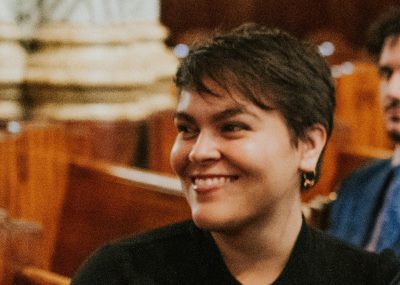
Master of Architecture student Andrea McIntosh
At the end of the project, each participant will present their work for the June 7 opening of the exhibit ᐊᖏᕐᕋᒧᑦ/Rovttu guvli /Towards Home in Montreal.
As part of her master’s program, McIntosh is also working on her thesis titled Psychedelic Architecture: set and settings for altered states of consciousness.
“I am researching psychedelic-assisted therapy health care spaces and their role in the treatment of mental health disorders,” she explains.
McIntosh’s work will establish design considerations for these spaces and explore what can be learned from Indigenous psychedelic communities about how to create ‘health generating’ spaces and practices.
“I think there is so much to be gained from Indigenous perspectives about health,” she adds. “We are intimately connected to what exists beyond the body, to our relationships with others, with our environment, and to the unknown.”
Patricia Bérubé, Accessibility Advocate in Art and Life
Accessibility of visual art is a focus of PhD candidate Patricia Bérubé’s research. She started by exploring tactile translations of paintings to improve accessibility for visually impaired museum visitors in her master’s program. As part of her PhD in Cultural Mediations, Bérubé is adding an audio component to help these visitors experience art in their own terms and with autonomy.
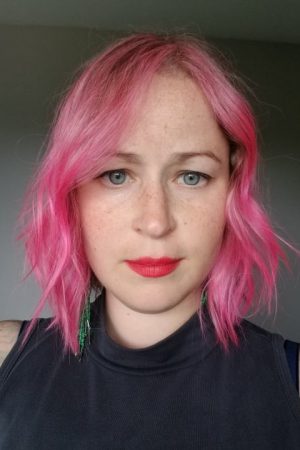
Cultural Mediations PhD candidate Patricia Bérubé
Upon her arrival at Carleton, she joined the Research and Education in Accessibility, Design, and Innovation (READi) training program. The program provides researchers from a variety of disciplines the opportunity to take part in theory and practice in accessibility. In addition to being a trainee, Bérubé is also a Student Accessibility Champion within another program, the READ Initiative.
“I couldn’t find such initiatives at my previous university, so this was something that was very important to me,” she says.
The training READi provided would quickly become helpful in an unexpected way for Bérubé.
“In the first year of my program, I received a diagnosis of bipolar disorder type II,” she says, noting the diagnosis finally put words to what she had been experiencing. “Being enrolled in the READi program, I decided that I wanted to be vocal about it.”
Bérubé explained that the public’s understanding of her diagnosis, including how it differs from bipolar disorder type I, and neurodivergent accessibility issues in general is limited.
To help educate others and shed light on a subject that is normally hidden, she has shared her experiences through lectures—including the challenges she faced dealing with symptoms prior to her diagnosis while being a high achieving student.
“Everyone is different, and our differences should be seen as normal. We should not all be trying to fit into the small box that we call normalcy.”
Monday, March 7, 2022 in Architecture, Faculty of Arts and Social Sciences, Faculty of Engineering and Design, Faculty of Graduate and Postdoctoral Affairs, International Women's Day
Share: Twitter, Facebook

